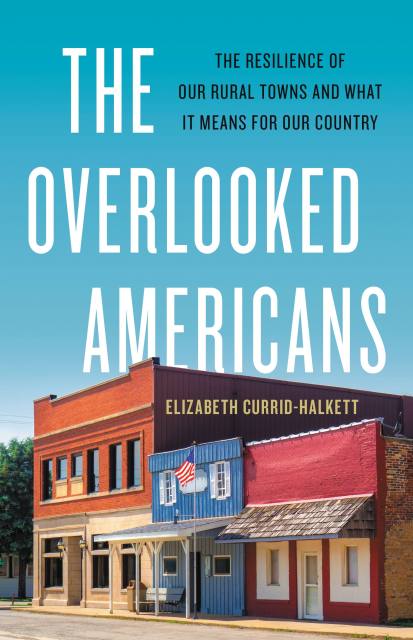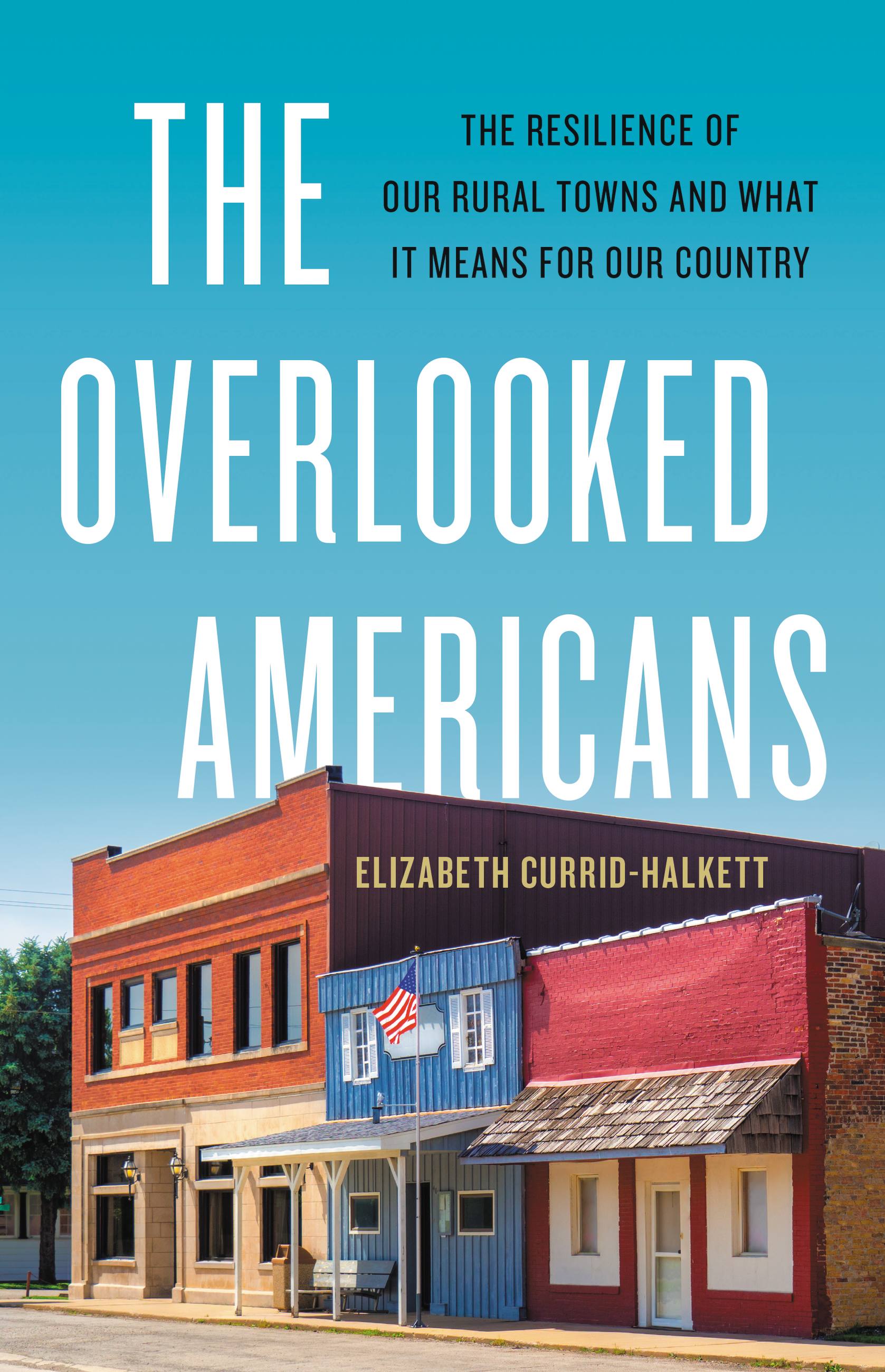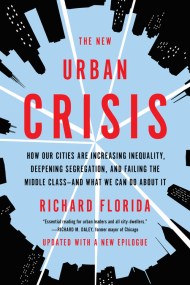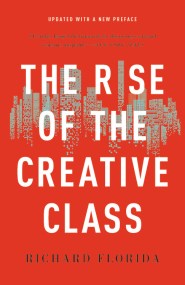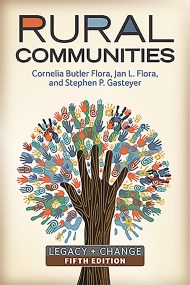By clicking “Accept,” you agree to the use of cookies and similar technologies on your device as set forth in our Cookie Policy and our Privacy Policy. Please note that certain cookies are essential for this website to function properly and do not require user consent to be deployed.
The Overlooked Americans
The Resilience of Our Rural Towns and What It Means for Our Country
Contributors
Formats and Prices
- On Sale
- Jun 6, 2023
- Page Count
- 432 pages
- Publisher
- Basic Books
- ISBN-13
- 9781541646728
Price
$32.00Price
$40.00 CADFormat
Format:
- Hardcover $32.00 $40.00 CAD
- ebook $18.99 $24.99 CAD
This item is a preorder. Your payment method will be charged immediately, and the product is expected to ship on or around June 6, 2023. This date is subject to change due to shipping delays beyond our control.
Buy from Other Retailers:
The Next Big Idea Club 2023 Must Read Book
We are frequently told rural America is in crisis. According to many journalists, academics, and politicians, our small towns have been hollowed out by lost jobs, and residents have turned to opioids and right-wing extremism to cope with their pain and resentment. In fact, many rural towns are thriving. Commentators have fixated on the steep decline of one region—Appalachia—and overlooked the millions of rural Americans who are succeeding in the heartland.
In The Overlooked Americans, public policy expert Elizabeth Currid-Halkett reveals that rural America has not been left behind the rest of the nation but instead is surprisingly successful. Drawing on deep research, including data and in-depth interviews, she traces how small towns are doing as well as, or better than, cities by many measures, including homeownership, income, and employment. She also shows how rural and urban Americans share core values, from opposing racism and upholding environmentalism to believing in democracy. Looking everywhere from Missouri to Minnesota to her hometown of Danville, Pennsylvania, Currid-Halkett ultimately reveals that the nation is less fractured by geography than many believe.
This is an urgent appeal for Americans to reconnect across a rural-urban divide that isn’t so wide after all.
Genre:
-
“[Currid-Halkett] is right … that rural Americans are more racially diverse, more productive, and more broad-minded than the press and Hollywood would have us believe…. Rural America, moreover—she supports this claim by an array of statistics—compares favorably with big-city life in several important categories: home-ownership, employment, income equality, median income.”The Wall Street Journal
-
"Through surveys, demographic data, and personal interviews, The Overlooked Americans analyzes the complex views and identities of rural Americans."NPR
-
"I really wish that everybody in Washington, D.C., would read it, on both sides."Dominic Pino, National Review
-
"This book was a thrill for me to read....a lot of what [Currid-Halkett] is talking about are things I've experienced coming from rural America...incredible research and data analysis."Heidi Heitkamp, former U.S. Senator, North Dakota, C-SPAN
-
“Excellent....a pleasant read in addition to being highly edified.”Sandra Day O’Connor Institute for American Democracy
-
“Currid-Halkett is a serious scholar with genuine interest in, and even affection for, the people she depicts…[a] deep empirical analysis of survey data, alongside hundreds of hours of interviews with rural Americans.”The Dispatch
-
"Ms. Currid-Halkett pushes against the myth that rural America is largely composed of less educated, politically conservative people supportive of politicians whose policies actually work against their best interests. She also deconstructs whether or not urban Americans are actually regarded as more educated, liberal and politically active….The Overlooked Americans is a useful beginning toward the goal of understanding all of America — rural and urban alike.”Pittsburgh Post Gazette
-
"Thoughtful, detailed, and thorough."The Daily Yonder
-
“ Currid-Halkett looks at the way we look at one another from a commonsense, down-to-earth viewpoint that doesn’t overtalk. Readers should know that there’s a large amount of science in this, and enough data to make a statistician happy, but it’s the interviews that stand tall and stand up for another way of thinking.”North Platte Telegraph
-
"Fascinating."Phil Knight, ABC Radio National
-
"The Overlooked Americans educates, and it begs for tolerance, compassion and patience. It’s for grown folks who can see that anger and heel-digging isn’t anything to brag about anymore.”Keizer Times
-
"A lively dismantling of preconceptions about the rural U.S…. A hopeful and provocative analysis bound to raise discussion."Kirkus (Starred)
-
“[An] astute survey… Idealistic yet well-grounded, this is a refreshing antidote to doom and gloom prognostications of where America is headed.”Publishers Weekly
-
“The Overlooked Americans is a much-needed reassessment of small-town life in rural America. Based on detailed research, the book reveals life in rural America to be complex and varied—and in many cases better off than conventional wisdom would have us believe. This timely book belies the narrative of a nation sharply polarized across an urban-rural divide. Instead, Elizabeth Currid-Halkett shows that Americans aren’t nearly as divided by geography as the punditry and media would have us believe. Urban, suburban, and rural Americans have more in common than we think. A modern-day version of Michael Harrington’s classic, The Other America, this moving book is essential reading for all who care about the future of our country and its people.”Richard Florida, author of The New Urban Crisis
-
“What is America really? Currid-Halkett pierces through the noise and challenges mainstream narratives with this timely, rigorous, and heartfelt analysis. The Overlooked Americans tears down entrenched definitions and stereotypes and builds a new image of rural America that is not hopelessly divided from urban America. Nuanced, cogent, and empathetic, this book deserves attention from politicians, pundits, and the public.”Jane Harman, USC Presidential Scholar, Former Member of Congress (CA, 36)
-
“Currid-Halkett has long been a formidable observer of cultural trends, but with The Overlooked Americans, she deftly combines qualitative and quantitative research to create a riveting, clear-eyed, and often-surprising portrait of small-town America.”Sloane Crosley, author of Cult Classic
-
“Currid-Halkett’s The Overlooked Americans is a pleasure to read. It is the most balanced and broadest-ranging look at her topic. Through data and heartfelt stories, Currid-Halkett reveals the grit and resilience of rural Americans.”Tyler Cowen, George Mason University
-
“This book by a leading scholar of regional development puts to rest, supported by empirical evidence, the damaging myths about people in rural America. Citizens in rural areas are, for the most part, educated and civic-minded. Their quality of life appears to be higher than the average metropolitan dweller's, and they are not supporters of ideological and political extremism. Instead, they are hard-working and entrepreneurial, contributing to a healthy economy. This is an essential book that will change the public debate on the state of the nation."Manuel Castells, University of California, Berkeley
-
“The Overlooked Americans is a powerful antidote to the drop-in ‘diner interview.’ Currid-Halkett takes a sledgehammer of data to cherished myths about rural America and replaces them with empathetic portraits of complexity and contradiction. Her bottom line: America is not as divided as many Americans think nor in the ways we’ve been led to believe.”Philip Gorski, Yale University
Newsletter Signup
By clicking ‘Sign Up,’ I acknowledge that I have read and agree to Hachette Book Group’s Privacy Policy and Terms of Use
